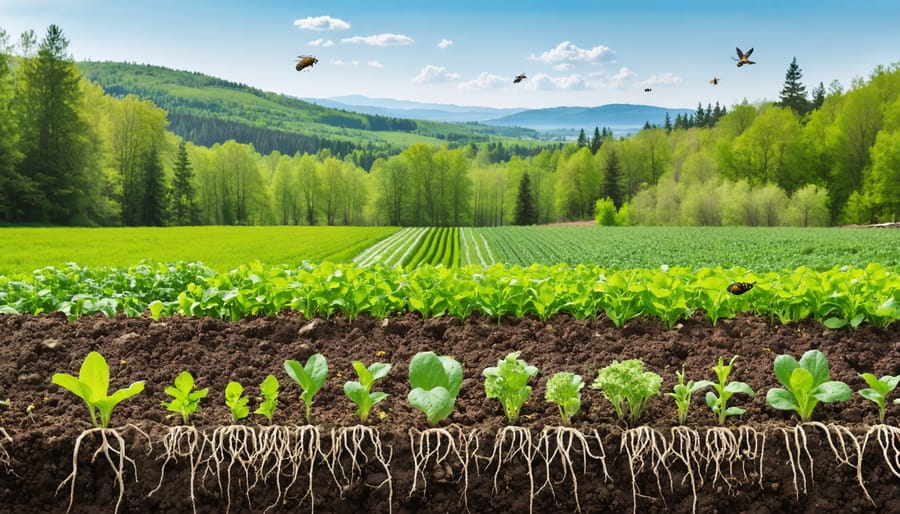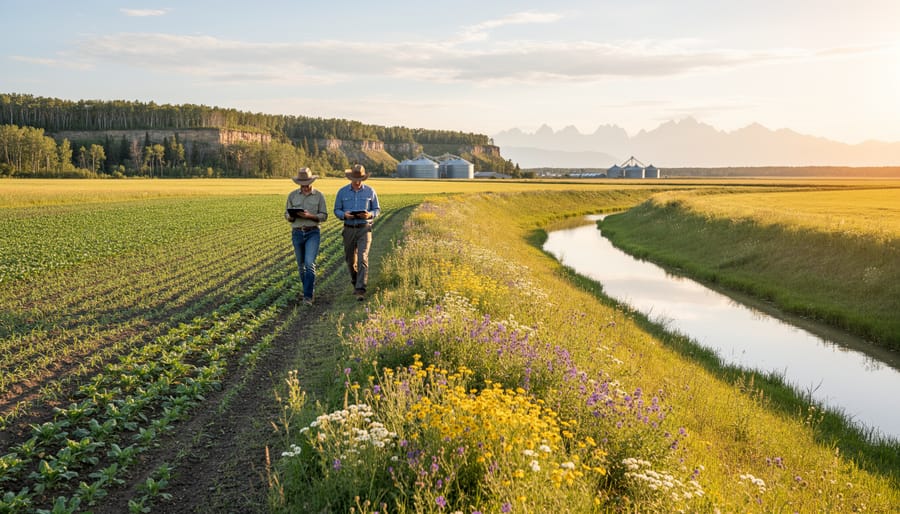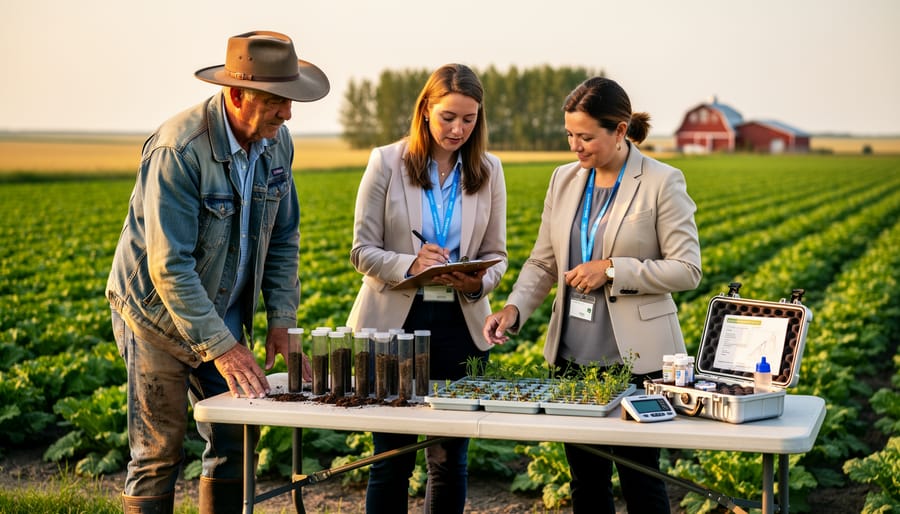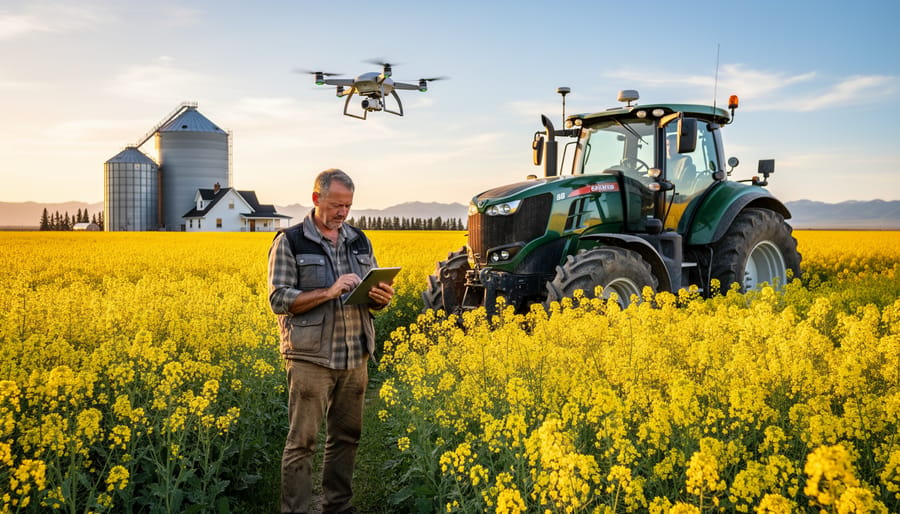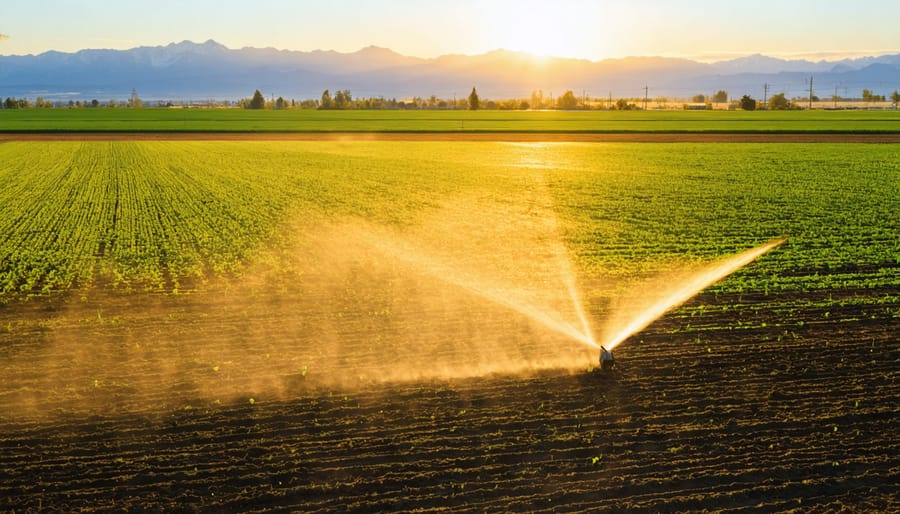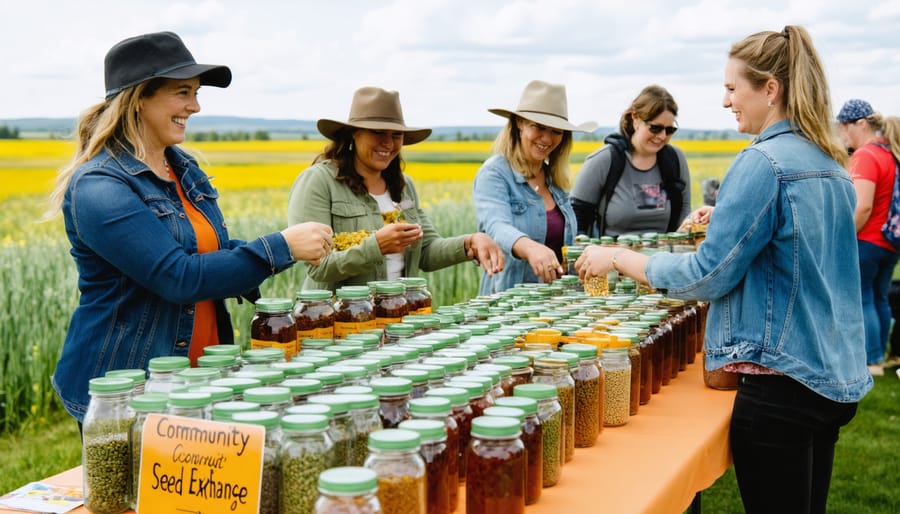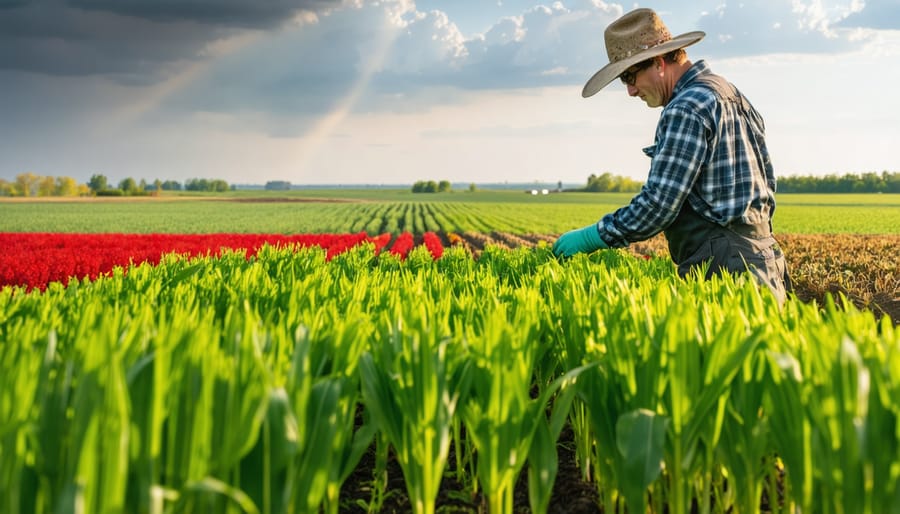Organic farming is a beacon of hope in the fight against environmental degradation. By embracing natural, sustainable practices, organic farmers nurture the soil, protect biodiversity, and combat climate change. In a world facing ecological crises on multiple fronts, the shift to organic agriculture is not just an option – it is an urgent necessity. Through their dedication and innovation, organic farmers are proving that we can feed a growing population while healing the planet we call home. The benefits of organic farming extend far beyond the fields, offering a path to a greener, more resilient future for generations to come. In this article, we will explore the transformative power of organic farming and the vital role it plays in safeguarding our environment.
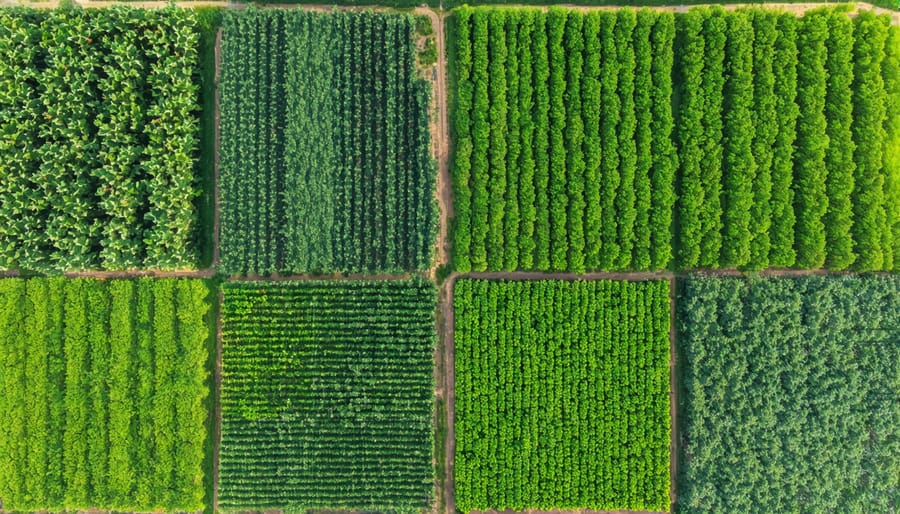
Enhancing Soil Health and Fertility
Crop Rotation for Nutrient Balance
Crop rotation, a cornerstone of organic farming, plays a vital role in maintaining soil fertility and preventing nutrient depletion. By alternating different crops on the same plot of land each season, farmers can ensure that the soil receives a balanced mix of nutrients. For instance, planting nitrogen-fixing legumes like peas or lentils can replenish nitrogen levels in the soil, reducing the need for synthetic fertilizers. This practice is particularly beneficial in Alberta, where diverse crop options like canola, wheat, and pulses enable effective rotation cycles. Additionally, rotating crops helps break pest and disease cycles, minimizing the reliance on chemical interventions. By adopting thoughtful crop rotation strategies, organic farmers in Canada can maintain the long-term health and productivity of their land while promoting a more sustainable and resilient agricultural system.
Cover Crops as Soil Guardians
Cover crops are unsung heroes in organic farming, acting as vigilant soil guardians. These hardworking plants, such as clover, rye, and alfalfa, are strategically grown between main crop rotations to shield the soil from erosion caused by wind and rain. Their extensive root systems hold the soil in place, creating a protective network that maintains the land’s integrity.
But cover crops do more than just prevent erosion. As they grow, they add valuable organic matter to the soil, enhancing its structure and fertility. When these crops are turned back into the earth, they decompose, releasing essential nutrients that nourish future plantings. This cyclical process is particularly effective when combined with organic no-till practices, which minimize soil disturbance and allow the cover crops to break down naturally.
Moreover, cover crops contribute to the thriving biodiversity beneath our feet. Their presence encourages the growth of beneficial microorganisms, insects, and fungi, creating a vibrant ecosystem that supports plant health. By fostering this diversity, cover crops strengthen the soil’s resilience against pests and diseases, reducing the need for synthetic interventions.
As Canadian farmers, particularly those in the Alberta region, embrace cover cropping, they are investing in the long-term vitality of their land. By working with nature’s cycles and harnessing the power of these soil guardians, we can build healthier, more productive agricultural systems that sustain us for generations to come.
Reducing Chemical Pollution
Organic farming practices significantly reduce chemical pollution by minimizing the use of synthetic pesticides and fertilizers. Unlike conventional farming, which heavily relies on these chemical inputs, organic agriculture promotes the use of natural pest control methods and organic fertilizers. This approach not only protects the health of the crops but also safeguards the surrounding environment from harmful chemical runoff.
When synthetic pesticides and fertilizers are applied to crops, a substantial portion of these chemicals can end up in nearby water bodies through soil erosion and runoff. This chemical pollution can have devastating effects on aquatic ecosystems, harming fish, invertebrates, and other wildlife. Additionally, chemical runoff from agricultural lands can contaminate groundwater sources, posing risks to human health in rural communities that rely on well water.
By adopting organic farming practices, Canadian farmers can play a crucial role in protecting our precious water resources. Organic agriculture minimizes chemical runoff by using alternative pest control methods such as crop rotation, companion planting, and the promotion of beneficial insects. These techniques help maintain a natural balance in the farm ecosystem, reducing the need for synthetic pesticides.
Furthermore, organic farmers prioritize the use of organic fertilizers like compost, green manure, and animal manure. These natural soil amendments slowly release nutrients into the soil, reducing the risk of nutrient leaching and runoff compared to synthetic fertilizers. By building healthy, nutrient-rich soils, organic farming practices not only minimize chemical pollution but also enhance the overall resilience of the agricultural landscape.
As stewards of the land, Alberta farmers have the power to make a significant difference in protecting our environment from chemical pollution. By embracing organic farming practices and sharing knowledge within the agricultural community, we can work together to create a more sustainable future for generations to come.
Supporting Biodiversity

Organic Farms: Safe Havens for Pollinators
Organic farming practices create safe havens for vital pollinators like bees, butterflies, and hummingbirds. By avoiding harmful pesticides and cultivating diverse plant species, organic farms support thriving pollinator populations. In Alberta, studies show that organic canola fields host up to 50% more pollinator species compared to conventional fields. Pollinators are essential for crop production and maintaining biodiversity in surrounding ecosystems. Organic farmers often dedicate areas to pollinator-friendly plants, providing food and shelter throughout the growing season. By protecting pollinators, organic farms not only ensure their own productivity but also contribute to the health of nearby wild spaces. Encouraging pollinator populations is just one way organic agriculture helps boost biodiversity. As more farmers adopt organic practices, Alberta’s agricultural landscape can become a network of pollinator-friendly habitats, strengthening the resilience of our food systems and natural environment.
Preserving Native Plant Species
Organic farming practices play a vital role in preserving native plant species and preventing the spread of invasive vegetation. By avoiding synthetic herbicides and pesticides, organic farmers allow native plants to thrive alongside crops, promoting biodiversity and resilience. This approach is particularly important in Alberta, where iconic native species like the wild rose and the western red lily are under threat from habitat loss and chemical sprays.
Organic methods such as cover cropping, crop rotation, and intercropping create diverse landscapes that mimic natural ecosystems, providing suitable habitats for native plants. For example, an Alberta farmer who plants clover between rows of wheat helps suppress weeds while offering a haven for native wildflowers. By maintaining buffer zones and hedgerows around fields, organic farmers create corridors for native plants to spread and connect isolated populations.
Moreover, organic farming’s emphasis on building healthy, living soils reduces the risk of invasive species taking hold. Invasive plants often exploit degraded, chemically-treated soils, outcompeting native species. By prioritizing soil health and biodiversity, organic practices make it harder for invasives to establish and spread, protecting the integrity of Alberta’s unique native flora for future generations.
Combating Climate Change
Organic farming practices play a crucial role in combating climate change by sequestering carbon in the soil, reducing greenhouse gas emissions, and building resilience against climatic impacts. By avoiding synthetic fertilizers and pesticides, organic farmers allow the soil to retain more carbon, which would otherwise be released into the atmosphere. Studies have shown that organically managed soils can sequester carbon in the soil at rates up to 2.2 tonnes per hectare per year, making it a powerful tool in mitigating climate change.
Furthermore, organic farming reduces greenhouse gas emissions associated with the production and use of synthetic inputs. By relying on natural fertilizers like compost and cover crops, organic farmers minimize the energy-intensive processes involved in manufacturing and transporting synthetic chemicals. This not only lowers the carbon footprint of the farm but also promotes a more self-sufficient and locally-adapted agricultural system.
Organic farming practices also enhance the soil’s ability to retain water and withstand extreme weather events such as droughts and floods. The increased organic matter content and improved soil structure resulting from organic management allow the soil to absorb and store more water during heavy rainfall, reducing the risk of erosion and runoff. During dry spells, this stored water becomes a valuable resource for crops, helping them to better withstand drought stress.
By promoting biodiversity and ecosystem services, organic farming further strengthens the resilience of agricultural systems against climate change impacts. Diverse crop rotations, intercropping, and the presence of natural habitats on organic farms support a wide range of beneficial organisms, such as pollinators and natural pest predators. This diversity helps to buffer against the effects of climate variability and ensures a more stable and productive agricultural landscape in the face of changing conditions.

Conclusion
In conclusion, organic farming offers a multitude of environmental benefits that contribute to a sustainable and thriving agricultural future for Alberta. By prioritizing soil health, preserving biodiversity, reducing pollution, and mitigating climate change, organic farming practices align with the values of environmental stewardship and responsible land management. Alberta farmers who adopt these methods not only produce healthy, high-quality crops but also play a vital role in safeguarding our province’s natural resources for generations to come. As the demand for sustainable and ethically produced food continues to grow, transitioning to organic farming practices presents an opportunity for Alberta farmers to lead the way in creating a more resilient and environmentally friendly agricultural system. By working together and sharing knowledge, our farming community can build a strong foundation for a greener, healthier future that benefits both our environment and our local economies.

